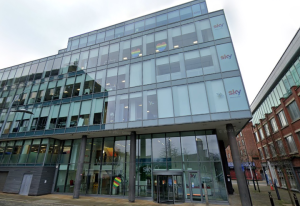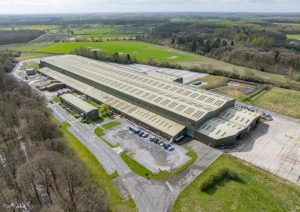Choosing the Right Premises for Your Business

New year, new office? If this is the case for you, choosing the right office or premises to suit your business setup is one of the most important decisions you can make. Whatever industry you work in or however many employees you have, a commercial property is much more than just a physical address.
In fact, establishing an office that is an inviting space for staff and visitors can fundamentally influence and shape your company’s future success. Your employees are also more likely to be productive, happy, and collaborative if they appreciate where they work.
Whether it’s having a welcoming reception area or designated parking spaces, there are some key factors to consider when you’re looking for the right premises. Here are a few pointers to help get your search underway.
Think Beyond Your Location
The location of a commercial property is typically considered one of the most important decisions you’ll make as a business owner. The enduring importance of a company’s address can’t be overstated but it’s wise to think beyond where the premises are and whether that particular location will work for your long-term business plans, goals, and size.
If you’ve outgrown your current space and it’s time to find a new work setting, there are usually a few reasons for relocating your business, from a growing workforce and having space for meetings to committing to a long-term venture. If you’re a startup, while your immediate operational requirements might be met in one building, think about scaling up and question whether the same premises can expand along with your company’s growth.
Having a strategic location is a great foundation for your business success so think about how the area’s demographics fit with your target market, your proximity to key suppliers, and nearby competitors. Retail businesses and companies operating in busy cities might really depend on ‘walk-ins’ and passing traffic. They, in turn, particularly benefit from locating themselves in areas with a strong footfall and the highest possible visibility, while service-based companies might prioritise accessibility and professional surroundings.
Create a Winning First Impression
The first impressions of your business count for everyone who visits your company whether you’re in a pristine office block, a unit on an industrial site, or a converted stately home. A strategic and well thought-out office design communicates positive vibes about your company’s brand ethos, priorities, and values. Creating a welcoming reception area can win over visitors from the moment they step through the door.
Ideally, opt for a reception space and workplace that immediately puts employees and visitors at ease. As well as being visually appealing, ensure any waiting areas, meeting areas and desk zones are tidy, clean, and comfortable with professional and ergonomic furniture arranged to accommodate both individual visitors and small groups. You might want to finesse the lighting, décor, and furnishings to align with your company’s identity and redesign interiors or exteriors to showcase your services and products in the best light.
Optimise Parking and Operations
While it makes sense that you want a business to be based in an attractive building in a fantastic location next to great local amenities, a winning first impression isn’t everything. With 41% of people in the UK travelling to work by car, bike, or on foot, your employee’s drive and commute into their place of work is an experience that needs to be made easy. This means selecting a work site that can accommodate staff and visitor numbers without causing daily frustrations that can disrupt working hours or present challenges down the line.
Similarly, opting for a workplace that is easy to commute to can be a real plus point that boosts staff retention. Your premises will benefit everyone if they have clear signposts, a generous number of parking bays and user-friendly access/exit routes in and out. It may also be worth considering the provision of secure, covered parking facilities. This could include electric garage doors that offer protected, all-day and overnight parking, together with dedicated bike storage for staff and visitors alike.
Meanwhile, the operational infrastructure of any chosen commercial property can significantly impact your business’s daily functioning and long-term success. Work out how many delivery services you expect on a regular basis. For businesses handling physical goods or equipment, loading facilities require careful consideration. When you look at different workplace settings, assess whether loading bays can accommodate your typical delivery vehicles and if access routes are viable for the efficient movement of goods.
Size Up Your Potential Workplace
Determining the optimal size for your commercial space requires careful consideration of both current needs and future growth potential. Instead of simply focusing on square footage, consider how the space will function in practice. An effective space plan accommodates your immediate operational requirements while providing flexibility for expansion, ensuring your premises can adapt to changing business needs without necessitating a costly move.
Storage requirements deserve particular attention, as inadequate storage can create operational inefficiencies and a cluttered work environment. Consider not just current inventory and equipment storage needs, but also space for archives, supplies, and seasonal variations in stock levels. Remember that while excessive space can burden your budget with unnecessary costs, insufficient space can constrain growth and productivity.
Safeguard People and Premises
Learning about business security and implementing a comprehensive strategy when you’re settling into a new commercial premises can help to protect not just physical assets but also data, employees, and business continuity. Modern security considerations should encompass both physical and digital protection measures. Begin by assessing the building’s existing security features, including access control systems, CCTV coverage, and alarm systems. You’ll also want these to integrate with specific security requirements before knowing if any additional measures might be necessary.
Health and safety procedures to protect employees, contractors, and visitors are a given in any workplace but it’s a good idea to be aware of fire safety and emergency procedures when you’re searching for a new site. Evaluate emergency exits, fire suppression systems, and evacuation routes. Be mindful that a building’s layout might affect emergency response times and whether additional safety measures might be required for your specific operations. Insurance requirements often influence security needs, so consult with insurers early on to understand any specific requirements they might have.
Future Proof Your Investment
When selecting a commercial property, considering both your current needs and possible future scenarios will pay dividends in future proofing your business. Where possible, try to reimagine a space and question if it can be reconfigured as your business grows, changes, and evolves and whether the building’s infrastructure can support tech or other shifts.
While rental costs often dominate discussions about working environments, numerous other financial factors require careful consideration. Service charges, business rates, and utility costs can significantly impact your total occupancy costs. When the time comes to potentially rebrand your new workplace, you’ll need to account for all the fit-out expenses, ongoing maintenance requirements, and any necessary security deposits or legal fees.
Selecting the right commercial property for your business needs requires careful planning and management of many interconnected factors. Business success lies in balancing immediate operational needs with long-term objectives with an eye on your budget. By thoroughly evaluating each aspect, you can make an informed decision and choose the right business premises that support your future growth and long-term success.









